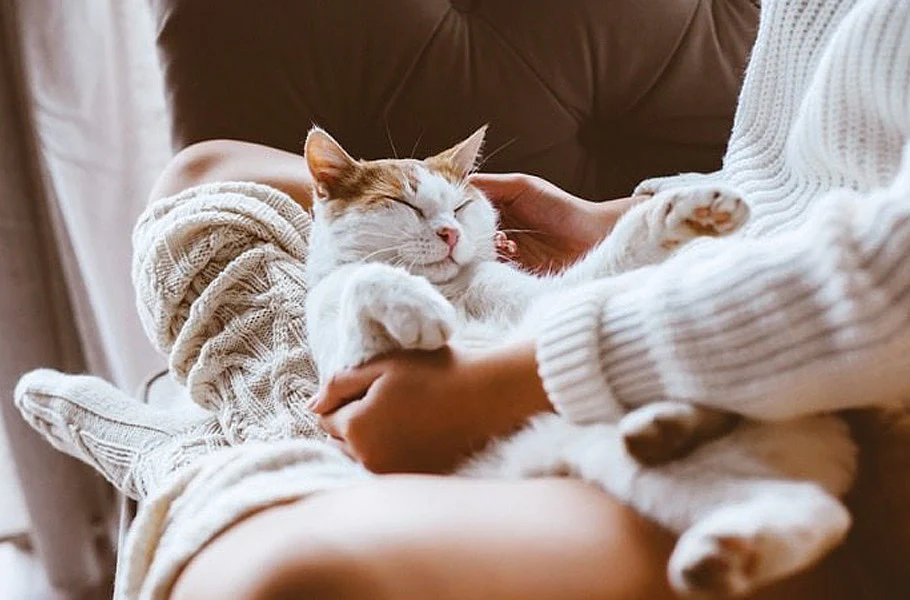It may take time to understand your cat since they exhibit a complex set of behaviors that can even leave experienced cat owners perplexed. One question pet owners have is how long do cats live and what are their average life expectancies?
Average Lifespan
We’ve all heard the saying cats have nine lives, but the lifespan of a cat can be influenced by various factors, including their diet, healthcare, and environment. Neutered cats, for instance, have a higher chance of living longer due to the prevention of reproductive diseases and reduced tendency to roam.
Although the lifespan of domestic cats is dependent on multiple variables, some may live up to 20 years old, though luck can play a role as well. Throughout their life, cats go through six essential life stages, which can assist their owners in identifying potential health or behavioral issues and areas to monitor.
The Life Stages of Your Cat
Kitten – Up to Six Months
Introducing your furry friend to new experiences is crucial during the early stages of their development. It’s the perfect time to get your cat accustomed to various sounds around the house, other pets, brushing, handling, and even children.
This stage is also marked by their most significant growth spurt, making it an ideal time to keep an eye on their health and nutritional needs. Moreover, spaying or neutering your pet during this period can prevent unwanted litters and reduce the chances of certain health issues later in life.
Junior – Six Months through Two Years
During this phase, your feline friend reaches their full size and sexual maturity. As a responsible pet owner, it’s essential to teach them how to play appropriately, which involves avoiding rough and tumble games and opting for toys instead.
Playing with your hands may appear harmless when they are still kittens, but it can encourage biting and scratching. Remember that they will grow up quickly, and the bites and scratches may become more painful over time. Therefore, it’s crucial to set boundaries and establish healthy play habits early on to avoid any unwanted behavior later in life.
Prime – Three to Six Years
During the prime of your cat’s life, which is the phase they are currently in, it’s crucial to prioritize their health and wellbeing. Although your feline friend may be youthful and energetic, it’s essential to keep up with their vaccinations and routine check-ups to safeguard them against any potential illnesses or diseases.
Mature – Seven to Ten Years
As your cat enters this particular age group, they can be likened to a human in their mid-forties to mid-fifties. With that, you may observe that your feline companion is starting to show signs of decreased activity and an increased tendency to gain weight.
Thus, it becomes crucial to be mindful of their food intake and ensure that they receive the appropriate amount of nutrition based on their level of activity. If you’re uncertain about your cat’s weight or unsure how to adjust their feeding routine, it’s best to seek guidance from your trusted veterinarian.
Senior – 11 through 14 Years
As your cat reaches the milestone of 70 human years old, you may notice that they require more mental stimulation to maintain their happiness. Enriching their living space should be a consistent practice throughout their lifetime, and it becomes even more important during their senior years when they tend to relax more.
One way to keep your feline friend entertained is by introducing food puzzles, which not only serve as a mental exercise but also encourage them to stay active. It’s worth noting that food puzzles can be particularly useful for cats struggling with weight issues.
Geriatric – 15 Years and Older
While some fortunate felines can reach this age with no signs of slowing down, others may prefer to take things easy and spend their days leisurely snoozing on their beloved bed or your lap. As your cat enters their geriatric phase, it’s crucial to keep a close eye on any changes in their behavior, such as alterations in their vocalization patterns or frequency of using the litter box. If you observe anything unusual or concerning, it’s best to schedule regular visits with your veterinarian.
Ending on a Fun Fact
The world’s oldest recorded cat, named Creme Puff, was a mixed Tabby domestic feline who lived with her owner, Jake Perry, in Austin, Texas, USA. According to the 2010 edition of Guinness World Records, Creme Puff passed away at the remarkable age of 38 years and 3 days in Austin, Texas, U.S.

